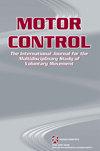Event-Related Potentials Analysis of the Effects of Discontinuous Short-Term Fine Motor Imagery on Motor Execution.
IF 0.9
4区 医学
Q4 NEUROSCIENCES
引用次数: 0
Abstract
In this study, event-related potentials and neurobehavioral measurements were used to investigate the effects of discontinuous short-term fine motor imagery (MI), a paradigm of finger sequential MI training interspersed with no-MI that occurs within 1 hr, on fine finger motor execution. The event-related potentials revealed that there were significant differences in the P300 between the fine MI training and the no-MI training. There were also significant changes in the P200 between fine motor execution of familiar tasks after MI training and fine motor execution of unfamiliar tasks without MI training. Neurobehavioral data revealed that the fine MI enhanced fine motor execution. These findings may suggest that discontinuous short-term fine MI could be useful in improving fine motor skills.不连续短期精细运动图像对运动执行影响的事件相关电位分析。
在这项研究中,我们使用事件相关电位和神经行为测量来研究不连续短期精细运动想象(MI)对精细手指运动执行的影响,这是一种手指连续MI训练穿插在1小时内发生的无MI训练的范式。事件相关电位显示精细心肌梗死训练与非心肌梗死训练的P300存在显著差异。在训练后的熟悉任务的精细运动执行与未训练的不熟悉任务的精细运动执行之间,P200也有显著的变化。神经行为数据显示,精细心肌增强精细运动执行。这些发现可能表明,不连续的短期精细心肌梗死可能有助于改善精细运动技能。
本文章由计算机程序翻译,如有差异,请以英文原文为准。
求助全文
约1分钟内获得全文
求助全文
来源期刊

Motor Control
医学-神经科学
CiteScore
1.80
自引率
9.10%
发文量
48
审稿时长
>12 weeks
期刊介绍:
Motor Control (MC), a peer-reviewed journal, provides a multidisciplinary examination of human movement across the lifespan. To keep you abreast of current developments in the field of motor control, it offers timely coverage of important topics, including issues related to motor disorders. This international journal publishes many types of research papers, from clinical experimental to modeling and theoretical studies. These papers come from such varied disciplines as biomechanics, kinesiology, neurophysiology, neuroscience, psychology, physical medicine, and rehabilitation.
Motor Control, the official journal of the International Society of Motor Control, is designed to provide a multidisciplinary forum for the exchange of scientific information on the control of human movement across the lifespan, including issues related to motor disorders.
Motor Control encourages submission of papers from a variety of disciplines including, but not limited to, biomechanics, kinesiology, neurophysiology, neuroscience, psychology, physical medicine, and rehabilitation. This peer-reviewed journal publishes a wide variety of types of research papers including clinical experimental, modeling, and theoretical studies. To be considered for publication, papers should clearly demonstrate a contribution to the understanding of control of movement.
In addition to publishing research papers, Motor Control publishes review articles, quick communications, commentaries, target articles, and book reviews. When warranted, an entire issue may be devoted to a specific topic within the area of motor control.
 求助内容:
求助内容: 应助结果提醒方式:
应助结果提醒方式:


